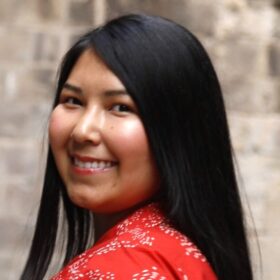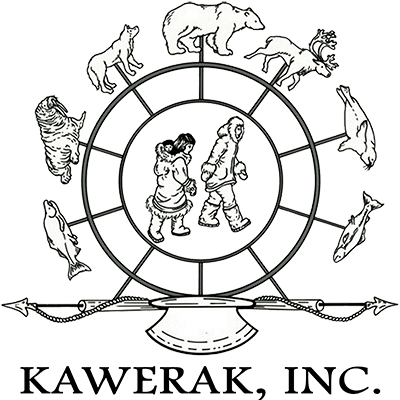What drew you to the Caleb Scholars Program?
I like the idea of being mentored by someone culturally and conservation connected, as I’ve already experienced mentorship from resource development that was not native affiliated.
What are your educational and career goals? How do your goals relate to environmental conservation?
My educational goals are to receive a B.S. in Energy and Sustainability Policy, my career goals are to hopefully influence the north slope of Alaska to consider developing renewable energy such as geothermal energy as we have two prospective sites on the north slope that seem feasible. These goals directly relate to environmental conservation.
What does Inuit-led conservation advocacy mean to you?
Inuit led conservation means that the first people of this land are making decisions for the land that’s their home. It means to me that we have sovereignty over choice, over the resources we wish to explore.
How do you engage with environmental issues/conservation advocacy in school and/or at home?
I engage with environmental issues/conservation advocacy in school through learning the best I can on the online learning platform. At home, I work for nonprofit that focuses on cultural conservation.
Please share a reflection of when you have felt a connection to the ocean or the
land.
land.
When I was a child, I used to dream of Arctic animals stampeding me in a tumultuous storm, they were gathering to the sea ice, at the end of my dream, it would be calm and all the Arctic animals would stare at me, as if to say, we are one, protect us. I believe this is a call to action in my waking life. I feel this is my connection to the ocean and land.
Do you have a personal story about meeting Caleb Pungowiyi or a connection to his legacy and impact?
I have not had the honor or privilege of meeting Caleb Pungowiyi, however I believe I went to school with one of his family members. I am connected to his legacy and impact through following in his footsteps of Inuit led conservation.

